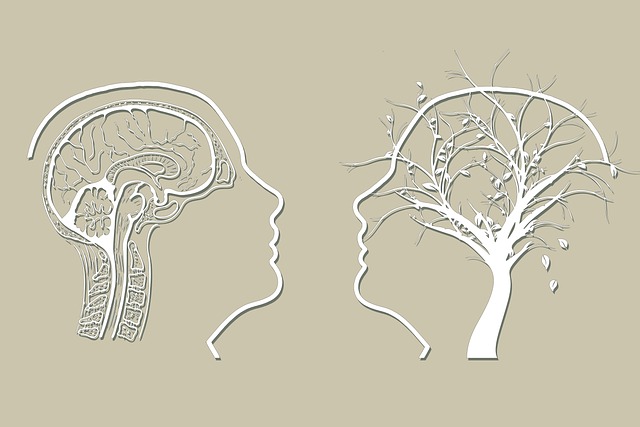Lafayette EMDR Certified Therapy empowers individuals to improve mental well-being through positive thinking techniques. Combining EMDR with mindfulness practices, this therapy helps process traumatic memories and reframe negative thoughts. Daily exercises like gratitude journaling and reframing, when paired with structured self-care routines, enhance emotional resilience and life satisfaction. Tracking progress through mood journals or apps further supports the cultivation of a positive mindset. Lafayette EMDR Certified Therapists offer effective tools for stress reduction, conflict resolution, and fostering healthier communication.
Positive thinking is a powerful tool for enhancing mental well-being. This article explores how Lafayette EMDR Certified Therapy can be a game-changer in cultivating optimism and resilience. We’ll guide you through understanding positive thinking’s profound benefits, delving into the therapy’s unique approach, and providing practical tips for incorporating daily exercises. Learn effective techniques to implement these practices smoothly and track your progress towards sustaining a positive mindset.
- Understanding Positive Thinking and its Benefits
- Lafayette EMDR Certified Therapy: An Overview
- Incorporating Daily Positive Thinking Exercises
- Techniques for Effective Implementation
- Tracking Progress and Sustaining a Positive Mindset
Understanding Positive Thinking and its Benefits

Positive thinking is a powerful tool for personal growth and well-being. It involves consciously focusing on optimistic thoughts, beliefs, and interpretations, even in challenging situations. This simple yet profound practice has a myriad of benefits, including improved emotional resilience, enhanced mental clarity, and better overall health. Research, as supported by Lafayette EMDR Certified Therapy, suggests that positive thinking can reduce stress, lower anxiety levels, and increase life satisfaction. By reframing negative thoughts and adopting a more uplifting perspective, individuals can develop coping skills that foster a healthier mindset.
Integrating positive thinking into daily routines can be a transformative process. It encourages the development of effective communication strategies, enabling people to express their feelings in healthy ways. Moreover, regular practice can lead to better decision-making abilities and improved relationships, as optimism tends to attract positive experiences and opportunities. Mental Health Education Programs Design that incorporate positive thinking techniques can empower individuals to take control of their mental health and cultivate a more balanced perspective on life’s challenges.
Lafayette EMDR Certified Therapy: An Overview

Lafayette EMDR Certified Therapy offers a powerful approach to mental health treatment, integrating eye movement desensitization and reprocessing (EMDR) techniques with certified training. This specialized therapy aims to help individuals process traumatic memories and promote positive thinking patterns. By stimulating the brain’s natural healing process, EMDR facilitates the resolution of distressing memories, beliefs, and emotions.
The method is backed by extensive research and has gained recognition globally through public awareness campaigns. It encourages clients to explore their thoughts and feelings while engaging in bilateral stimulation, often through side-to-side eye movements, tapping, or tones. This process helps desensitize individuals to traumatic events, fostering a sense of control and empowerment. Combining EMDR with mindfulness meditation techniques can further strengthen the benefits, allowing for profound personal growth and improved mental well-being.
Incorporating Daily Positive Thinking Exercises

Incorporating daily positive thinking exercises into your routine can significantly enhance mental well-being and overall life satisfaction. Lafayette EMDR Certified Therapy offers a range of effective techniques to cultivate a more optimistic mindset. These practices involve mindful reflection, gratitude journaling, and reframing negative thoughts into constructive ones. By dedicating just a few minutes each day to these activities, individuals can experience improved emotional regulation and resilience, which are crucial components of mental health.
For mental health professionals, integrating positive thinking exercises is not only beneficial for personal growth but also enhances their ability to assist clients in developing effective coping strategies. This practice aligns with the Risk Assessment for Mental Health Professionals, emphasizing the importance of self-care and maintaining a balanced mindset. Additionally, these exercises can serve as valuable tools during conflict resolution techniques, promoting healthier communication and positive interpersonal interactions.
Techniques for Effective Implementation

Implementing positive thinking exercises effectively requires a structured approach that combines various techniques. One powerful method is Eye Movement Desensitization and Reprocessing (EMDR), a Lafayette EMDR Certified Therapy approach that helps individuals process traumatic memories and associated emotions, thereby fostering a more optimistic mindset. This therapy involves guided eye movements or other bilateral stimulation to help the mind reprocess distressing memories, reducing their intensity and emotional hold.
Cultural sensitivity in mental healthcare practice is another essential aspect. Tailoring positive thinking exercises to respect and consider an individual’s cultural background ensures that interventions are inclusive and effective. Self-awareness exercises, such as meditation and journaling, can enhance this process by encouraging individuals to explore their thoughts and feelings while promoting personal growth and conflict resolution techniques for managing negative thought patterns.
Tracking Progress and Sustaining a Positive Mindset

Tracking progress is a vital aspect of cultivating and sustaining a positive mindset. After implementing positive thinking exercises, individuals often wonder, “Is it working?” Regular self-assessment allows one to gauge their mental health journey. By setting achievable goals and tracking daily moods, thoughts, and behaviors, people can identify patterns and areas for improvement. For instance, using a mood journal or an app designed for emotional well-being can provide valuable insights into the effectiveness of specific positive thinking techniques. This practice encourages accountability and helps to refine strategies, ensuring continuous growth and progress.
Lafayette EMDR Certified Therapy offers powerful tools for navigating stress reduction methods and enhancing communication strategies, which are integral components of fostering a resilient mindset. Moreover, developing a structured self-care routine can significantly contribute to maintaining mental health and overall well-being. By combining these approaches with consistent practice, individuals can sustain a positive outlook, even in challenging situations. This holistic approach to mental wellness empowers people to embrace change and cultivate a lasting sense of optimism.
Implementing positive thinking exercises, such as those enhanced by Lafayette EMDR Certified Therapy, can significantly improve mental well-being. By consistently practicing these techniques, individuals can cultivate a more optimistic mindset, leading to better emotional resilience and overall life satisfaction. Incorporating daily routines, utilizing effective strategies, and tracking progress are key steps towards sustaining this positive shift. Remember, with dedication and the right tools, like Lafayette EMDR Certified Therapy, transforming your mental landscape is achievable and life-changing.














